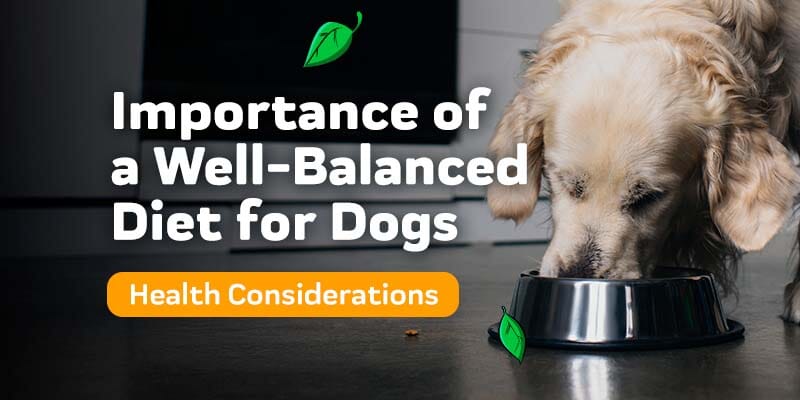- How to Tell If Your Cat is Losing Weight
- The Most Common Weight Loss Causes for Felines
- Always Discuss Cat Weight Loss With Your Veterinarian

When it comes to caring for your feline, something that might always be on your mind is their weight. Many pet owners worry a lot about their cats becoming obese, and as a result, many pet parents keep an eye on how much food their kitty cats consume. From monitoring the number of treats your cats are allowed to eat in a day to purchasing cat food dispensers that only disperse a certain amount of food at one time, there are many ways of preventing your cat from eating too much food.
As important as it is to be responsible for how much food your cat eats, it is equally as important to make sure your cat is eating in the first place. Obesity is a health concern among felines, but cats with unhealthily low body weight values are just as concerning as obese kitties. The most important step in figuring out why your cat is either not eating, or simply losing weight despite eating, is to determine the cause of your cat's weight loss.
How to Tell If Your Cat is Losing Weight

First of all, try not to worry too much about not recognizing your cat was losing weight from the very beginning. The likelihood that your cat's weight loss began way before you started picking up on the signs and symptoms is very high. The reason for this is that weight loss in felines is an especially slow process. Weight loss is even harder to pinpoint and recognize if your cat has long hair because the fluffiness of his or her coat will cover up the lack of body fat.
However, if you have any speculations that your pet is losing weight, then you can pet your cat gently and feel around to see if your feline seems smaller than usual. Another option of figuring out if your cat is actually losing weight is to quite literally weigh your pet on a scale. Since it can be quite difficult to get your pet to stand still on a scale for any longer than one millisecond, you can weigh your cat in three easy steps. First, stand on the scale and find out how much you weigh alone.
Then, with that number written down somewhere so that you won't forget it, pick up your cat and stand on the scale with him or her in your arms. Take note of the number on the scale, and then step off of the scale, letting your pet scurry along, as they probably will. Then, subtract the amount that you weigh alone from the weight of both you and your cat. Though it may not be completely spot on, this will give you a rough estimate of the weight of your cat. Carry out this process for seven days in a row and see if the number decreases over time.
If you regularly groom your cat, you're sure to notice that your cat is getting smaller from one grooming session to the next. If you are concerned about your cat's weight, pay particular attention to your kitty's hind legs and stomach area. The tummy is usually the place where excess fat is stored, as are the back upper thighs, so if you notice that there is less fat in these areas as the weeks go by, then you have your answer as to whether or not your cat is losing weight.
Another example of situations where a cat is losing weight would be when a cat’s bones are visible. The rib cage is usually the most prominent area of the body that begins to poke out when cats start losing weight. Cats are very secretive when there is something wrong with their bodies or their health, but typically, they will start to act more needy and attention-savvy when they are hurting or uncomfortable.
While it might not sound like a tremendous deal for your cat to lose some weight, something that is important to remember is that your cat does not weigh very much, to begin with, so one pound lost is far more impactful than it would be for a person, like you or me.
The Most Common Weight Loss Causes for Felines
Weight loss to an unhealthy degree is cause for concern. If your cat is losing weight far more quickly than usual, there could be a variety of reasons behind your cat’s sudden drop in weight. We will look at some of the most likely reasons why your cat’s weight is dropping in just a moment.
Weight loss is always and only the result of cats not eating enough food. The very definition of weight loss, in general, is exerting more energy and burning more calories than the number of calories being consumed. But cats are not often intentionally eating less food than they need. Some cats certainly do suffer from the side effects of anorexia, but refusing to eat is not always the reason behind feline weight loss. What could be causing your cat to eat less than usual? Let's find out!
Cancer and Tumors
Cancer is a very impactful cause of weight loss in cats. The most common type of cancer in felines is called gastrointestinal lymphoma, and it is often correlated with something known as the feline leukemia virus. Shortened to FeLV, the feline leukemia virus is a retrovirus, meaning that completely alters the genetic makeup of cells that it infects within your cat's body.
Retroviruses are considered an RNA virus, so it spreads by putting a copied version of itself into the deoxyribonucleic acid of any and every cell that it enters. You can think of it as a virus that takes over the healthy cells, and the fact that it replaces healthy DNA is a cause for concern in and of itself.
Gastrointestinal lymphoma involves the lymph system of your cat's internal functioning. Essentially, the lymph system is a series of vessels and they carry diseases from any part of the body to the exits, at which point the lymph system rids the body of toxins and unwanted materials.
The internal organs that the gastrointestinal tract encompasses include...
- Esophagus
- Mouth
- Small intestine
- Stomach
- Large intestine
So, if your cat has a tumor in or around the gastrointestinal tract, it is very likely that the cancerous mound is causing weight loss for your kitty. As always, seek medical attention as soon as possible.
Scheduling an appointment with your cat’s veterinarian is a great place to start, but if you think time is of the essence in your situation, then do not hesitate to head to the local feline emergency clinic. It’s always far better to be safe than it is to be sorry, and that applies to the health of your cats as well.
Diabetes: Type I and Type II
Diabetes in cats is a very likely cause of feline weight loss. Diabetes has everything to do with the insulin production of cats, so your cat is either not receiving enough insulin to satiate your cat's needs, or your cat's insulin levels are far too high for comfort. The possibility of your cat's weight loss being attributed to diabetes is not far fetched in the slightest.
This hormonal disease creates an inability for your cat's body to properly use the nutrients of the foods he or she is eating. As a result, your cat is likely going to feel hunger pangs and consistently feel the need to satiate them by eating, but due to the side effects of diabetes, nothing will make the hunger evaporate.
Along with hunger and weight loss, diabetes will likely cause your cat to experience...
- High levels of dehydration
- More bathroom breaks than usual
- Heightened risk of developing feline urinary tract infections
- Exhaustion and overall lethargy
There are two types of diabetes. Type I diabetes is a situation in which your cat's pancreas is acting up and failing to produce the healthy levels of insulin that a cat's body needs daily. Without insulin, the cells of your cat's body are not receiving the appropriate amounts of insulin that is then utilized for the purpose of energizing your cat. In fact, the pancreas is producing absolutely zero insulin hormones.
Type II diabetes, on the other hand, is a circumstance whereby there is too much insulin circulating around your cat's body. Think of it like this. Type I diabetes refers to a lack of insulin, while type II diabetes refers to a surplus of insulin. The extra levels of insulin are indicative of the fact that your cat's body does not properly utilize the hormone, and therefore, the insulin stays in the body rather than being put to work as fuel for all the functions and actions your cat’s body is responsible for on a daily basis.
Eating Disorders
You may or may not already know this, but eating disorders are not explicit to people. Our pets are just as susceptible to having issues eating properly and consistently enough to maintain a healthy mind and body. The most common type of eating disorder for felines is anorexia.
Classified by the way anorexia causes people and cats alike to not eat food, the eating disorder is a cyclical circumstance that does not improve until someone intervenes and addresses the problem. If anorexia persists in cats, their weight loss can become almost surreal, and the cats with anorexia can even end up developing something known as feline hepatic lipidosis.
This is the outcome of putting a body under such severe stress, thereby forcing the liver to break down the fat on your cat's body, and it happens to such a drastic degree that it begins to exhaust your cat's body. Also known by the term of fatty liver disease, feline hepatic lipidosis is the outcome of an anorexic cat's body attempting to find energy in any way that it can.
When cats don't eat, their bodies are in starvation mode, and eventually, their bodies have no choice but to pull from the fat sources already stored on your cat's skeletal frame.
Hyperthyroidism
Cats are not always losing weight as a result of eating less. In some cases, a cat can be eating plenty and simply not putting on any weight, not to mention even losing weight as a result of eating well. Though this phenomenon is quite perplexing, there is a very reasonable explanation for the situation.
A condition known as hyperthyroidism could very likely be the leading cause of your cat's continuous weight loss, especially if you have already ruled out disinterest in eating or a lack of appetite altogether. Hyperthyroidism is essentially a condition where the thyroid gland is in overdrive. When the thyroid is affected, it can start producing an abundance of hormones that play around with the activity levels of the thyroid.
When the hormones that are excreted from the thyroid are in abundance, then it means that there is too much of one hormone in the body. When the hormonal levels of your cat are out of balance, the body does not properly regulate all of its internal functioning. The resting metabolic rate of your cat will skyrocket as a result of hyperthyroidism, and from there, your cat's body will start burning far more calories than is normal. As a result, your cat will need to eat more until the thyroid issue is resolved by medical professionals.
Oral Problems and Tooth Pain
Severe toothaches or loss of teeth can cause your cat to lose weight rather rapidly. The main reason for this is the mere fact that biting down on teeth that are either cavities, missing, or broken in some way makes eating very difficult. If the process is painful, then your cat is less likely to try eating. Instead, it's very likely that your cat will opt for less pain but high levels of hunger than high oral pain and a full stomach.
If you notice your cat is chewing differently than usual, or if you find that your cat cannot seem to keep food in his or her mouth like normal, then you might want to take a look inside your pet's mouth and look around. If one or a few of your cat's front teeth are missing, then it is indicative of poor gums or subpar oral health. Schedule an appointment with your cat's vet immediately to see what they can do for your cat's oral pain.
Other possible underlying causes of weight loss in cats include…
- Endocrine diseases
- Heart problems
- Cardiovascular murmurs
- Failure of organs
- Kidney disease and malfunction
- Respiratory problems
- Trouble breathing properly
- Neurology-related diseases
- Liver failure
- Blockage of the nasal passage
- Pregnancy
- Nursing newborn kittens
- Bacterial infections
- Compromised immune systems
Inflammatory Bowel Disease
Inflammatory bowel disease is a condition that has been known to affect cats. The symptoms of this illness include vomiting and diarrhea, with both becoming more persistent as time goes on. Cats may lose weight at an alarming rate and will often stop eating due to the pain they feel in their lower intestinal area - inflammation can cause bleeding which leads to bright blood flecks present within feces or mucus. It's crucial for cat owners who notice these signs not only to act quickly but also take them seriously because it could be fatal if left untreated!
Always Discuss Cat Weight Loss With Your Veterinarian
If you notice your cat still losing weight on a consistent basis, it is imperative that you speak with your vet. As we have pointed out here in this article there are many factors that can lead to this dilemma and until you understand the root cause, then treatment will be hard to figure out. Watch for the clinical signs we have mentioned here and give your vet regular updates so your cat may live a happy and healthy life!
Sources:
cannabinoids in cancer biology
Approved by:
Dr. Sara Ochoa
Doctor of Veterinary Medicine, St. Georges University

Thanks for stopping by!
P.S. We Love You!
Sincerely,
The Innovet Team
Please do not ask for emergency or specific medical questions about your pets in the comments. Innovet Pet Products is unable to provide you with specific medical advice or counseling. A detailed physical exam, patient history, and an established veterinarian are required to provide specific medical advice. If you are worried that your pet requires emergency attention or if you have specific medical questions related to your pet’s current or chronic health conditions, please contact or visit your local/preferred veterinarian, an animal-specific poison control hotline, or your local emergency veterinary care center.
Please share your experiences and stories, your opinions and feedback about this blog, or what you've learned that you'd like to share with others.

















